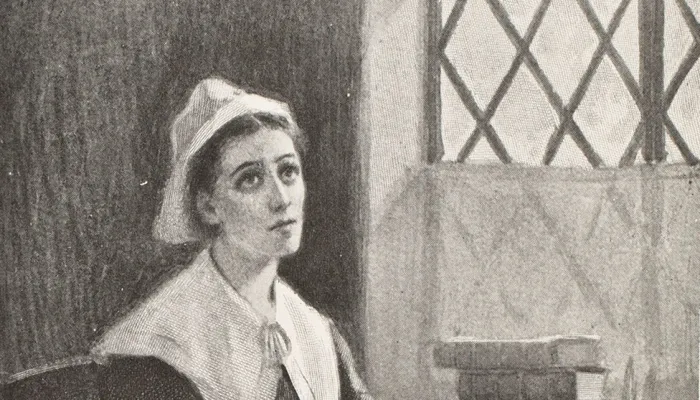Madhur Anand
Biography
An ecology professor at the University of Guelph, Madhur Anand co-edited the anthology Regreen: New Canadian Ecological Poetry. Her debut collection of poems, published in 2015, is A New Index for Predicting Catastrophes. Her debut experimental memoir, This Red Line Goes Straight to Your Heart won the 2020 Governor General's Literary Award. Her second collection of poems, Parasitic Oscillations, was published in 2022 and named a Top 100 pick by the Globe and Mail. In 2025 she published her first novel "To Place a Rabbit."
Micro-interview
The only poetry I recall reading in high school was in Grade 11 English Class with Mrs. Korczak at Thomas A. Blakelock High School in Oakville. She was a terrifying teacher. But, in retrospect, she was the best teacher I ever had. She made us read poems out loud. The day my turn came up it was “God’s Grandeur” by Gerard Manley Hopkins. I had no clue who he was and very little conscious understanding of the poem upon first reading. But I was physically moved by hearing my voice reading his lines. I have never forgotten that moment, and in fact wrote about it in my own book in a poem entitled “Nature Is Never Spent” (a phrase from his poem). I did not start reading poetry on my own until I was 25 and in the final year of writing up my PhD thesis in ecology. After that, I could not get enough of it.
I wrote my first poem in 1996, in the final year of writing up my PhD thesis in theoretical ecology. I’m not sure why. There were some conditions I had created, or were created for me, which I think forced the poetry out though: I was spending lots of time alone in a lab, computer programming, reading and writing theoretical ecology, in the process of scientific discovery. That was when the first poem came to me. Oh, and yes, there was also a long-distance love affair going on with a boy in Germany. After that, it was an arms race: I read great poetry, which inspired me to write better poetry, and so on.
I think I knew I was a poet (or at least a writer) from an early age, from childhood; something about the way everything I thought seemed so at odds with my experiences and my physical world. But I did not really start calling myself a poet until I published my first book with McClelland & Stewart in 2015 at the age of 44!
A poet’s job is to read and write (and preferably publish) poetry. How a poet does that is entirely up to the poet. Oh, and a poet also has to answer questions, like these, when they become a little bit successful. To help readers and writers of poetry.
I think the poem [“You Are Not Going to Come Trillium”] itself gives away the imminent inspiration: my mother’s heart attack and all the reverberations that had on my thoughts, feelings, and relationship to her and to life itself. But it was also the strangeness of the experience, the strangeness of hospital language, medical language, the idiosyncratic norms of Emergency and ICU, that also impacted me. I wanted to understand it all in my own way.
I would pick a French poem, which I guess you could say is my second language. I learned it in school and university, and I am practically fluent. I find myself able to express parts of my personality in French that I can’t in English. I am also very inspired by those who read poetry in a language other than their own, with accents. Which one? Maybe « L’infini » by Michel Van Schendel. I love the poem and the repetition could lend itself well to performance.
I am a university professor working in ecology and the environmental sciences and a poet. My first collection of poems was published in 2015 by McClelland & Stewart and contain many poems that relate to science.


